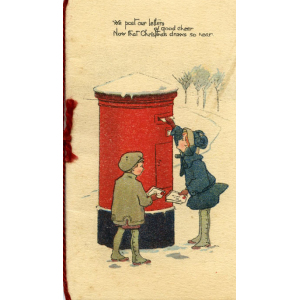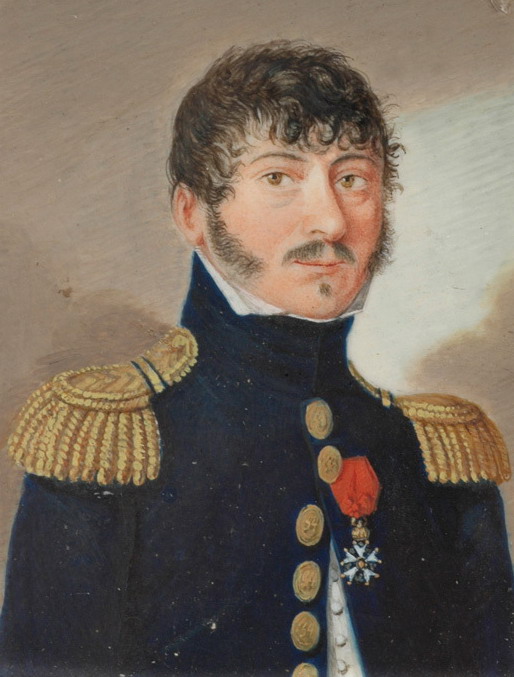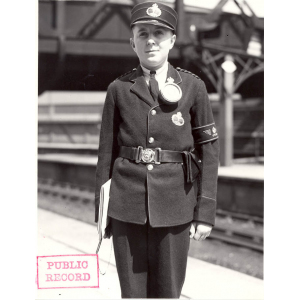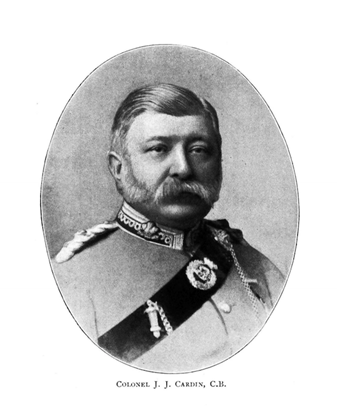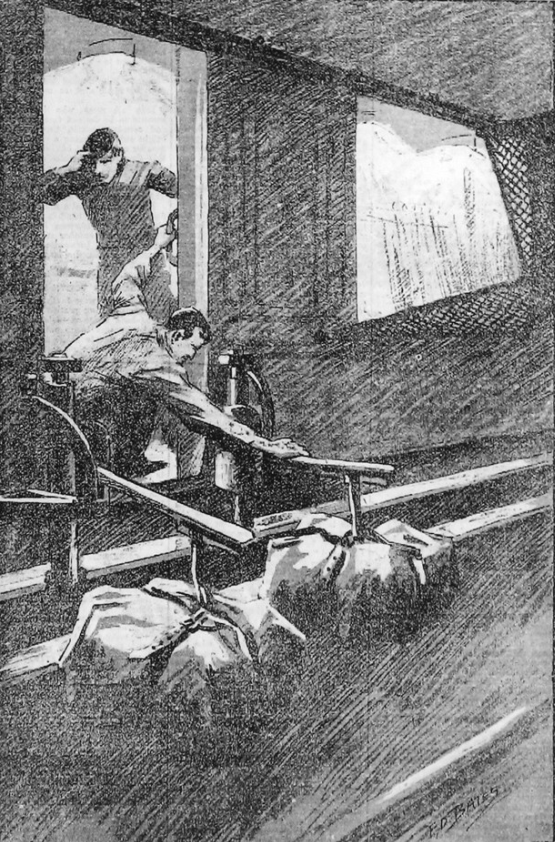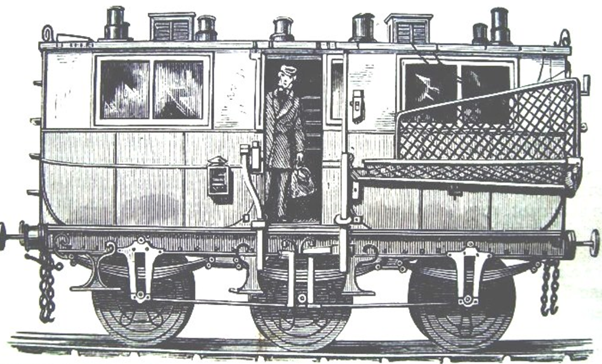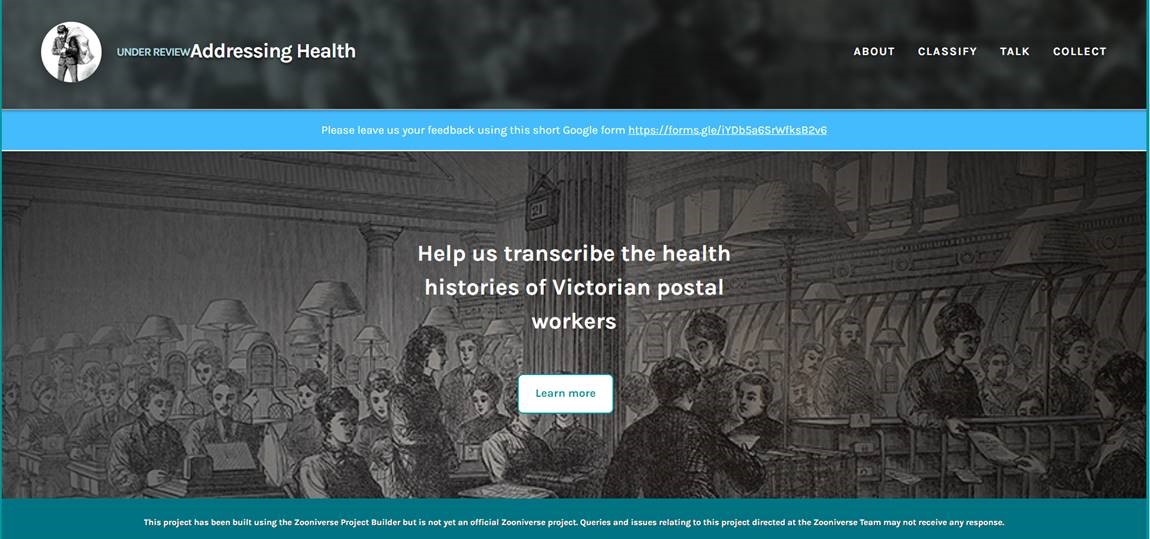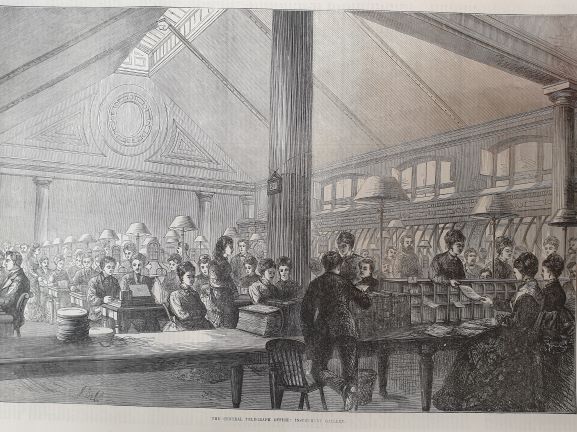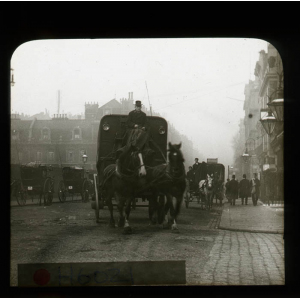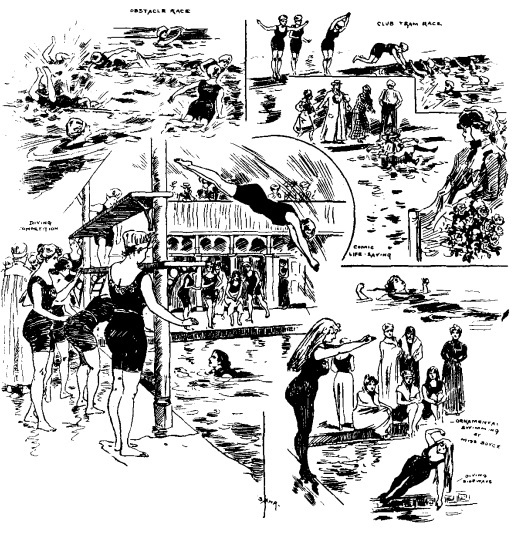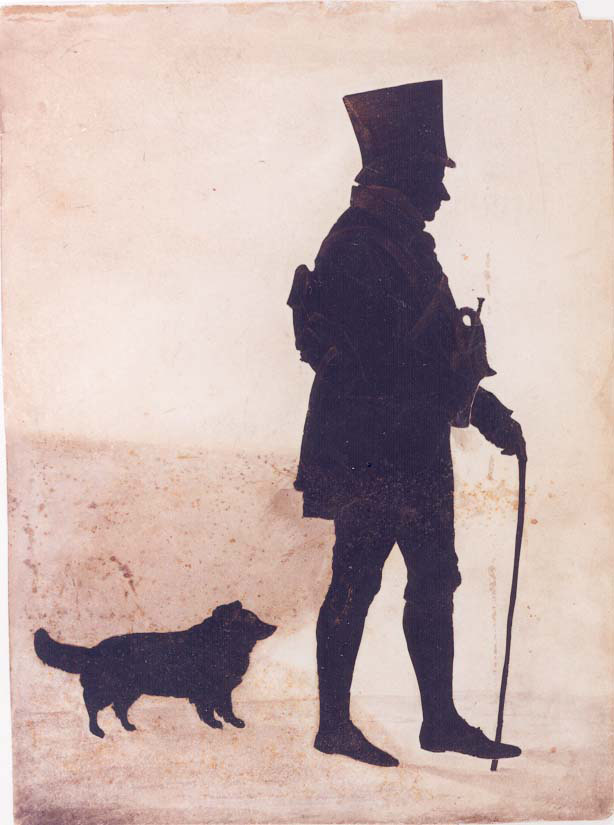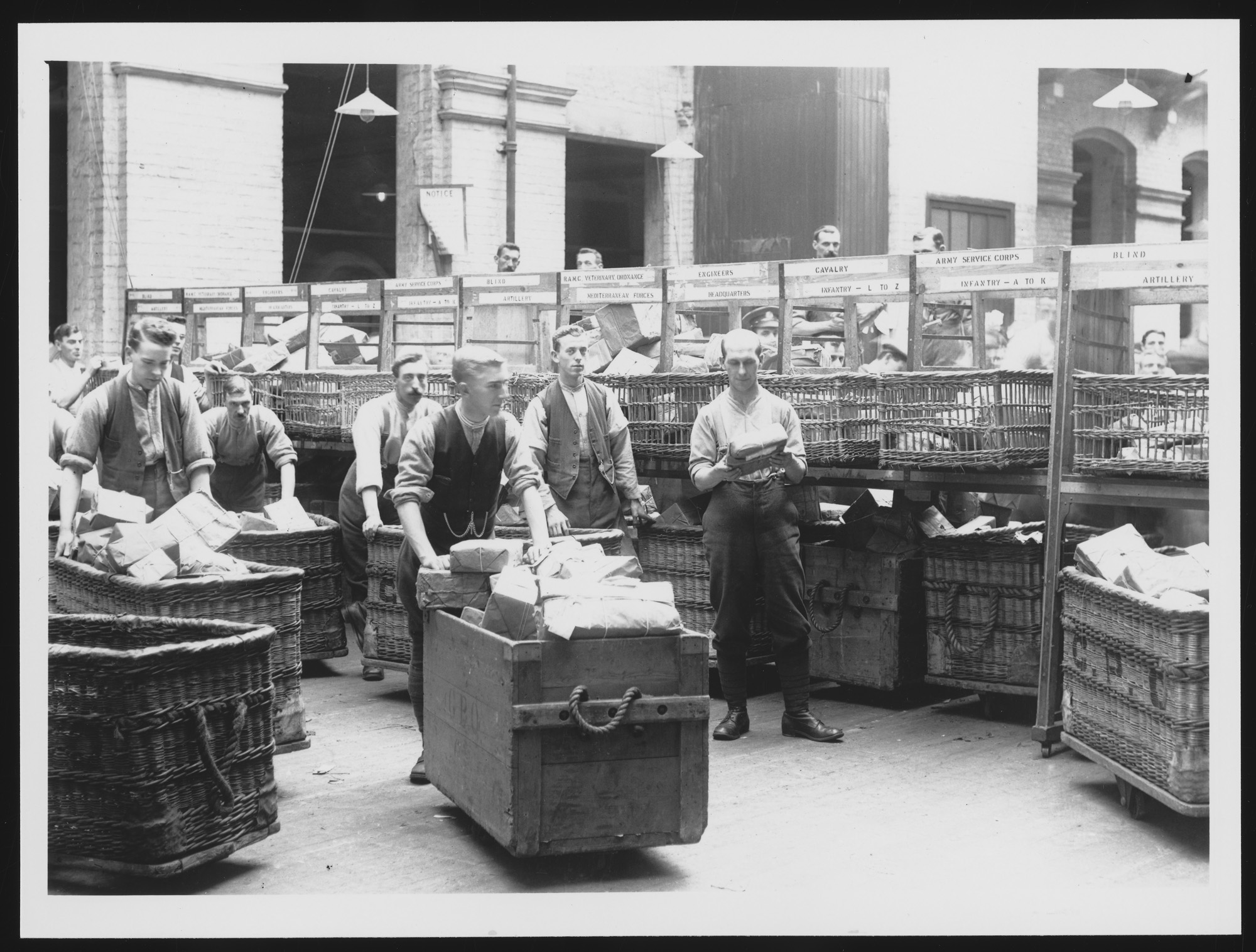‘We post our letters of good cheer/ Now that Christmas draws so near’. Early 20th century Christmas card. © Royal Mail Group Ltd, courtesy of The Postal Museum, 2005-0101/2 In 1843 Henry Cole, who had campaigned along with Rowland Hill for the introduction of the Penny Post, invented the first Christmas card. The idea soon… Read More
Blog
The Innkeeper Postmaster and the French Fugitives
Armand Philippon. By Richard Caton Woodville, Jr. – National Army Museum, London. Accessed via https://commons.wikimedia.org/wiki/File:Philippon.jpg On Saturday last John Hughes, innkeeper and postmaster of Rye, and William Robinson, who (with a man named William Platter) were convicted… of having aided in the escape of General Phillippon [sic] and Lieutenant Garnier, were placed in and upon… Read More
Measurements and Messengers: Growing Pains in the General Post Office
Boy messenger at Paddington Station, 1935 © Royal Mail Group Ltd [1935], courtesy of The Postal Museum, POST 118/426 In 1936 the Postmaster-General wrote in an article entitled ‘Making an A1 Nation’ that ‘the Post Office may indeed fairly claim…that it has in its employment a healthy and happy body of boys of whose conduct… Read More
Getting Hands on with Occupational Health
On 9th of April our project launched an exhibition at the Museum of Communication Burntisland entitled Hand Health in the Post Office. The exhibition traces the long history of occupational hand disorders in the workplace, from telegraphists’ cramp in the nineteenth and early twentieth century Post Office through to the “occupational epidemic” of Repetitive Strain… Read More
James Joseph Cardin (1839-1917) : the epitome of the respectable Victorian civil servant
Colonel J. J. Cardin, C. B. Source: St Martin’s-Le-Grand, XI (1901), facing page 14. © Royal Mail Group Ltd, courtesy of The Postal Museum. James Joseph Cardin was the epitome of the Victorian civil servant. He worked for the Post Office for forty years, and from 1886 until his retirement in 1901 he held the… Read More
Blindness in the Post Office
When we think of blindness in the Post Office, one example typically comes to mind: that of Henry Fawcett, ‘the blind postmaster’. Blinded in a hunting accident at the age of twenty-five, Henry nonetheless managed to fulfil his academic and political aspirations. He oversaw a key period of modernisation in the Post Office, introducing revised… Read More
Dr Joseph Chick
Joe Chick joins the Addressing Health team as a part-time research assistant. Joe is an historian of urban society who completed an ESRC-funded PhD at the University of Warwick in 2020. His research looks into urban society from the fourteenth to the sixteenth centuries. It focuses on towns held by monastic lords, traditionally associated with… Read More
‘A Very Hazardous Undertaking’ – Albert Latchford and the Mail Bag Apparatus
‘With Her Majesty’s Mails From Crewe to London’, report with illustrations concerning the work of the Travelling Post Office. (New Weekly, vol VI, 5, 4 May 1895) © Royal Mail Group Ltd [1895], courtesy of The Postal Museum, POST 111/33, p. 144. Soon after 8pm on Tuesday 8th December 1896 a column of uniformed men… Read More
Melancholy Martyrs to Progress – the hazards of working on the Limited Mail
A Mid-Victorian Travelling Post Office van. (A travelling clerk, complete with carpetbag, is standing at the door). Source: Routledge, Robert. Discoveries & Inventions of the Nineteenth Century, 13th Edition, London: George Routledge & Sons Ltd, 1900, p 111 Dr Augustus Waller Lewis, Chief Medical Officer to the Post Office, made an unexpected journey to the… Read More
Doug Brown (1977-2021)
Doug Brown: Historian, colleague, and friend We’re a project that deals with a lot of death. It’s something woven into the fabric of our working lives, a well-rehearsed routine: find the death certificates of historic postal workers, order them, download them, transcribe them, codify, analyse. We’ve done this all in a year with death surrounding… Read More
Addressing Health and Zooniverse: crowd-sourcing the pension records
At the end of May 1895 James Edward Buck applied for a Post Office pension. He was just 30 years old and had worked for the Post Office for nearly 15 years as a sorter in London. His pension application form reveals someone who took little time off for sickness. In the ten years before… Read More
Dr Edith Shove: “She-Doctor” to the General Post Office
The Central Telegraph Office, General Post Office, London, 1874 Source: Illustrated London News, 12 December 1874 “The practical absurdity of directing a female medical inspector to inquire into and report upon the minute of every ailment which may temporarily incapacitate the rougher sex from a performance of their duties in the Telegraph department.”[1] This excerpt… Read More
‘Always at Work’: The Post Office Horse
‘He begins his week’s work at four o’clock on Sunday afternoon; he ends it at half-past ten on Sunday morning; and at any time during that long week he is liable for instant service, and has only five and a half hours’ undisturbed rest…that is the only respite he is sure of—just enough, as it… Read More
George Fardo: the legacy of a Victorian Postmaster Poet (and my great grandfather)
I can’t remember exactly when I first became aware of my great-great grandfather George Fardo, or that he was the Postmaster of Cardiff from 1889-1898. Our family in Cardiff — where I was born and grew up before moving to London to pursue a career in music aged 19 — has always been very loving… Read More
Prescribing golf: sport, health, and the Post Office
The Isis Swimming ClubSource: St Martin’s-le-Grand, 13 (1903), 108. Courtesy of The Postal Museum Amongst the pages of St Martin’s-le-Grand – a magazine for Post Office employees which ran from 1890 to 1933 – it is difficult to miss the significance of sport to postal workers. Accounts of sporting fixtures abound, showing the variety of… Read More
Big Data and Working Lives
Letter carrier with dog, silhouette (watercolour). Courtesy of The Postal Museum, London. In the last decade or so big data has become an increasingly common phrase in all manner of academic fields. British history has been no exception. Numerous projects have produced large datasets about various issues including the legacies of slavery, British fertility decline,… Read More
‘Most people got bald’: Oral histories and the Post Office
When asked about his time as a sorter in the Post Office, Mr Charles Ward (born 1894) recalled that: ‘The senior men – I remember looking at them ‘cos most – most people got bald – more so in the Post Office than anywhere I think. They used to put it down to the –… Read More
